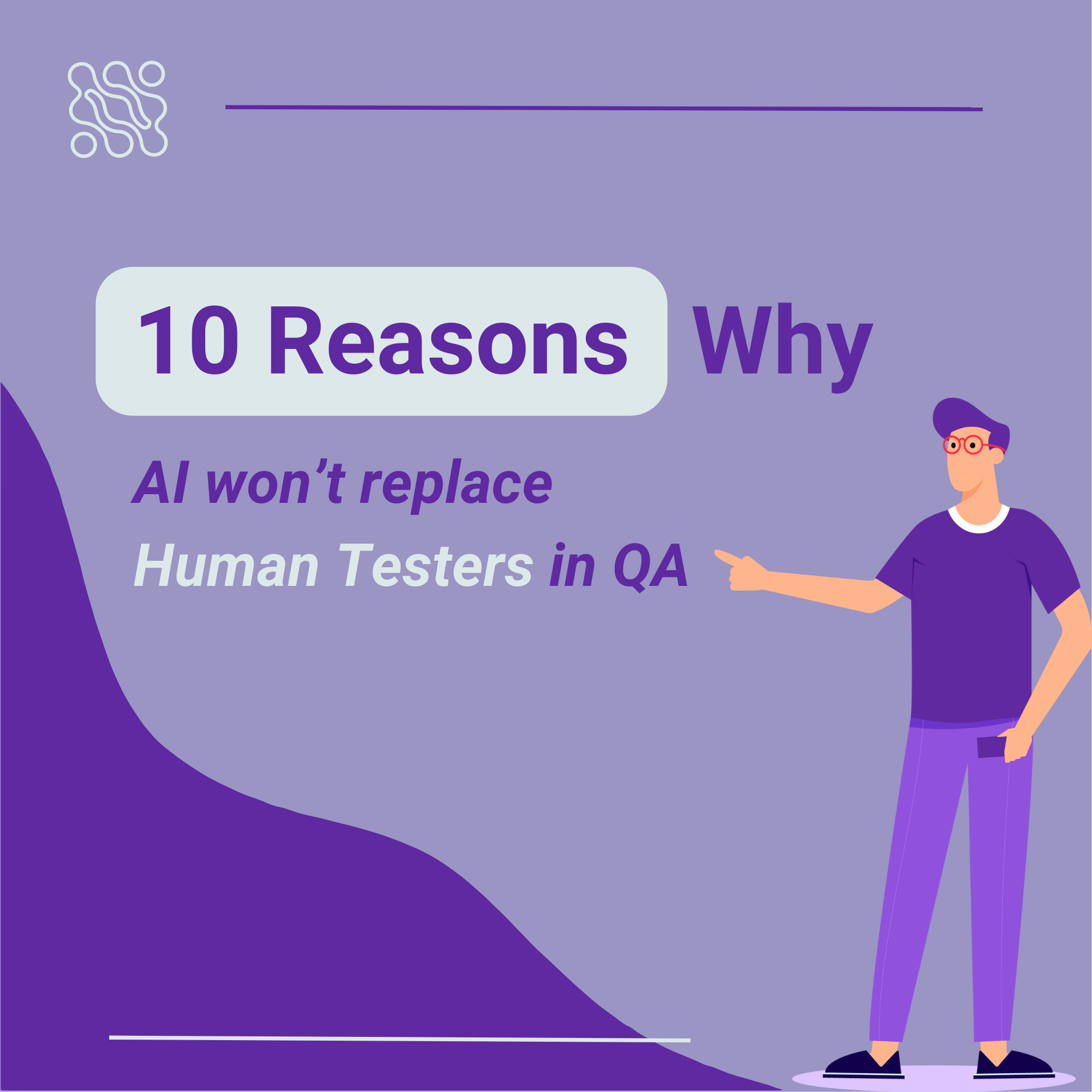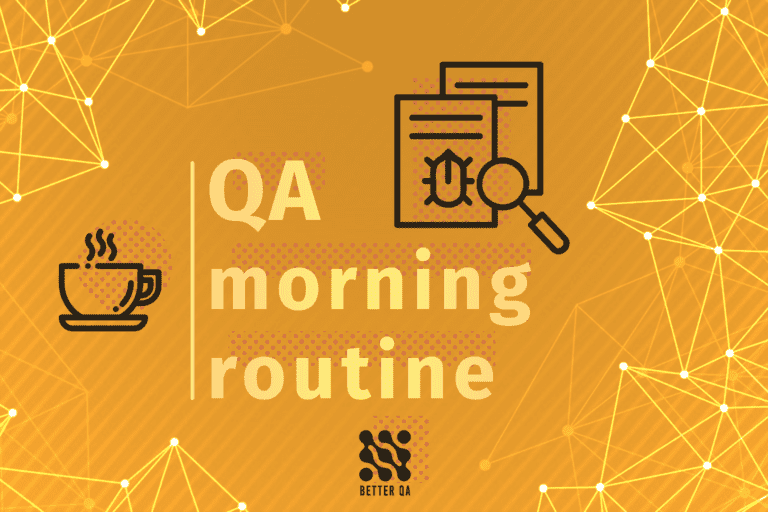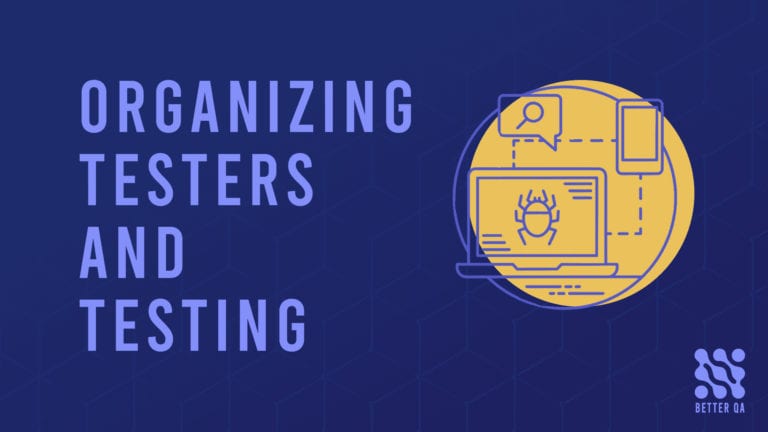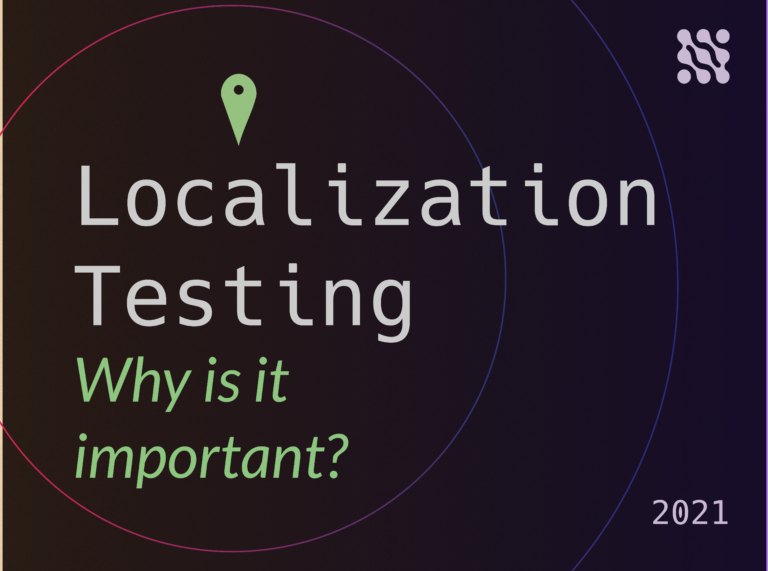10 Reasons AI Can't Replace Human Testers
AI can write tests. It can run tests. It can even report that everything passed. But when you open the application and start clicking, you discover the truth: AI tested its own assumptions, not what your users will actually experience.
"I've automated one of the projects with Playwright and Claude. AI said every test passed. Nothing worked. The idea for QA is not to become the second developer. QA ensures the product works for the people who will use it. Those users won't use Playwright and MCP - they use buttons, UI, flows, and real experience."
Tudor Brad, Managing Director, BetterQA
Why Human Judgment Remains Essential
AI is a powerful tool for test automation, but it cannot replace the human perspective that QA requires. Here are 10 fundamental limitations that keep humans at the center of quality assurance.
AI Doesn't Understand User Intent
AI tests what exists in the DOM, not what users want to accomplish. It clicks buttons because they are there, not because a user would naturally click them in that sequence. A human tester understands the user's goal and validates whether the interface actually helps achieve it.
AI Can't Do Exploratory Testing
Exploratory testing requires curiosity, intuition, and the ability to deviate from scripted paths. AI follows predefined flows. When a human tester sees something odd, they investigate. When AI sees something odd, it either flags an error or moves on. It cannot "wonder" what else might be broken.
AI Misses Context
Business rules, regulatory requirements, and domain-specific logic are invisible to AI unless explicitly written into test cases. A QA engineer who has worked on a banking application knows that negative balances trigger compliance alerts. AI does not know this unless someone tells it.
AI Hallucinates Test Results
In Tudor's case, AI reported that all tests passed while the login flow, payment form, and navigation were broken. AI asserted that elements existed without validating that they functioned correctly. A human catches the difference between "the button rendered" and "the button works."
AI Can't Evaluate UX and Usability
A truncated label, overlapping text, confusing navigation, slow response times that feel frustrating - these are UX issues that humans notice immediately. AI sees that the page rendered and calls it a pass. Users see a broken experience and abandon the product.
AI Needs Human-Written Requirements
AI cannot generate test cases in a vacuum. It needs specifications, acceptance criteria, and user stories written by humans. Without clear requirements, AI defaults to testing whatever it finds in the UI. The result is coverage without meaning.
AI Can't Handle Edge Cases It Wasn't Trained On
AI generates happy path tests with valid inputs and expected flows. It does not naturally test boundary conditions, rare combinations, or the creative ways users break applications. A human tester thinks, "What if I submit an emoji in the phone number field?" AI does not.
AI Doesn't Catch Visual and Design Bugs Reliably
Visual regression tools can detect pixel-level changes, but they cannot judge whether a design looks right. A button that shifts 2 pixels might be intentional or a bug. A color that passes contrast ratios might still look wrong for the brand. Humans evaluate design quality. AI evaluates technical correctness.
AI Can't Communicate With Stakeholders About Quality
QA is not just about finding bugs. It is about communicating risk to product owners, developers, and executives. AI can generate a report, but it cannot explain why a bug matters, prioritize issues based on business impact, or negotiate scope when deadlines are tight.
AI Needs Humans to Validate Its Output
This is the fundamental truth: AI is a tool, not a replacement. Every AI-generated test case, bug report, and test result requires human review. The moment you stop validating AI's output is the moment you ship broken software. There is no escaping the man in the middle.
How BetterQA Uses AI Without Replacing Humans
We use AI to move faster, not to replace judgment. Our tools augment human expertise, automate repetitive tasks, and provide insights - but humans make the final decisions at every critical checkpoint.
BugBoard for Bug Detection
Upload a screenshot or log. AI analyzes the context and generates a structured bug report with steps to reproduce, expected vs. actual results, and environment details. Then a QA engineer reviews it, refines it, and approves it before pushing to Jira or tracking internally.
Learn more about BugBoard →Flows for Self-Healing Automation
Record real user flows in the browser, then replay them with self-healing locators that adapt to UI changes. When the development team moves a button or renames a field, Flows automatically finds the new selector instead of failing. Tests stay maintainable without constant rewrites.
Validation at Every Step
Before a bug report is filed, a human reviews it. Before a test case is added to the suite, a human approves it. Before a build is marked as ready to ship, a QA lead validates the test results. AI accelerates the process. Humans ensure the output is trustworthy.
Transparent Time Tracking
BetterFlow tracks where QA time goes - test execution, exploratory testing, bug reporting, stakeholder communication. This transparency helps teams understand the real cost of quality and where to invest in automation. No guesswork, no padded estimates.
Learn more about BetterFlow →Professional QA Services
50+ engineers with 15+ years of combined experience. We bring expertise in manual testing, automation strategy, test case design, and risk assessment. AI handles the repetitive parts. Our engineers handle the parts that require judgment, experience, and human perspective.
Explore QA services →Certified Process Quality
ISO 9001 certified since 2018. Our QA processes are audited and validated to ensure consistent quality standards. When you engage BetterQA, you get more than engineers - you get a proven system for managing testing at scale.
Frequently Asked Questions
Will AI eventually replace QA engineers?
No. AI will replace repetitive QA tasks like regression testing and basic bug reporting, but it cannot replace the judgment, context, and user perspective that human testers provide. The role will evolve - QA engineers will spend less time on repetitive work and more time on strategic testing, exploratory testing, and risk assessment.
What is the biggest mistake teams make when adopting AI for testing?
Trusting AI output without validation. Teams see "all tests passed" and assume the product is ready to ship. Then they discover that AI tested its own assumptions instead of real user behavior. The fix: always have a human in the loop to validate AI-generated test results before making release decisions.
Can AI do exploratory testing?
No. Exploratory testing requires intuition, curiosity, and the ability to deviate from scripted flows based on what you observe. AI can only follow predefined paths or randomly click elements. It cannot "wonder" whether a bug in one area might indicate similar issues elsewhere, or decide to investigate an unexpected behavior further.
How does BetterQA combine AI and human testing?
We use AI to automate repetitive tasks: bug report generation in BugBoard, self-healing test locators in Flows, and test case creation from bug history. But humans review every AI-generated output before it is used. Our 50+ engineers provide the judgment, context, and validation that AI cannot.
What happens when AI says all tests passed but the app is broken?
This is the problem Tudor encountered: AI generated tests based on DOM structure, ran them, and reported that everything passed. But the tests were checking the wrong things. The login flow returned errors, the payment form submitted empty data, and navigation links were broken. AI tested technical correctness at the DOM level. A human tester would have caught these issues in seconds by actually using the application.
Should I use AI-powered testing tools like Playwright MCP?
Yes, but with human oversight. Tools like Playwright MCP are excellent for generating test scaffolds quickly. The problem is when you trust the output without validation. Use AI to accelerate test creation, but always have a QA engineer review the tests, verify the assertions, and ensure they test user behavior, not just DOM structure.
Test Like Humans Use Your Product
50+ engineers who use AI to move faster, not to replace judgment. BugBoard, Flows, human validation at every step. ISO 9001 certified since 2018.
BOOK A CONSULTATIONStay Updated with the Latest in QA
The world of software testing and quality assurance is ever-evolving. To stay abreast of the latest methodologies, tools, and best practices, bookmark our blog. We’re committed to providing in-depth insights, expert opinions, and trend analysis that can help you refine your software quality processes.
Delve deeper into a range of specialized services we offer, tailored to meet the diverse needs of modern businesses. As well, hear what our clients have to say about us on Clutch!



